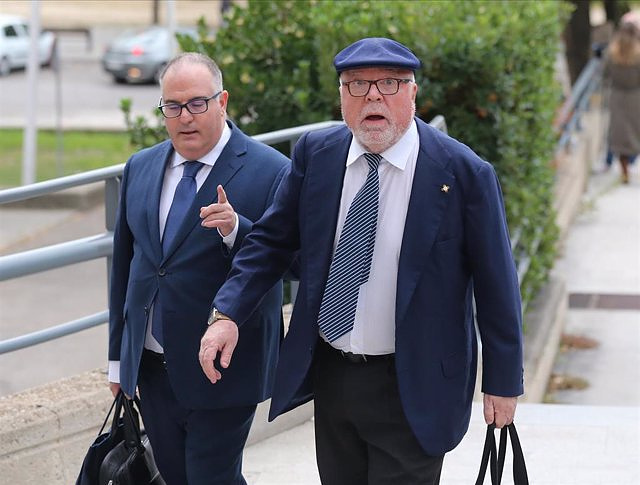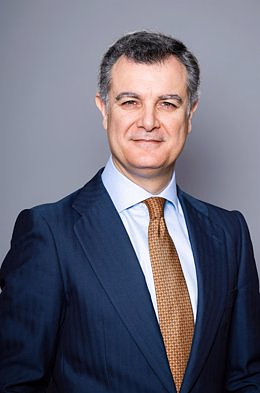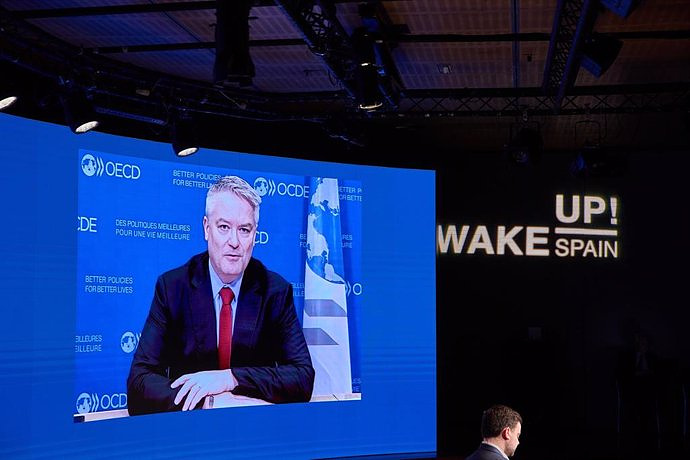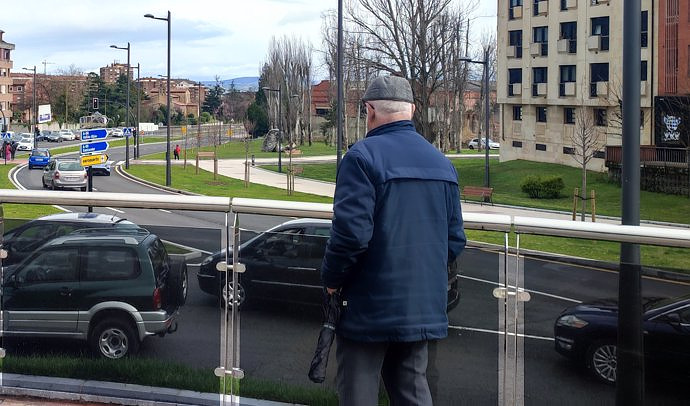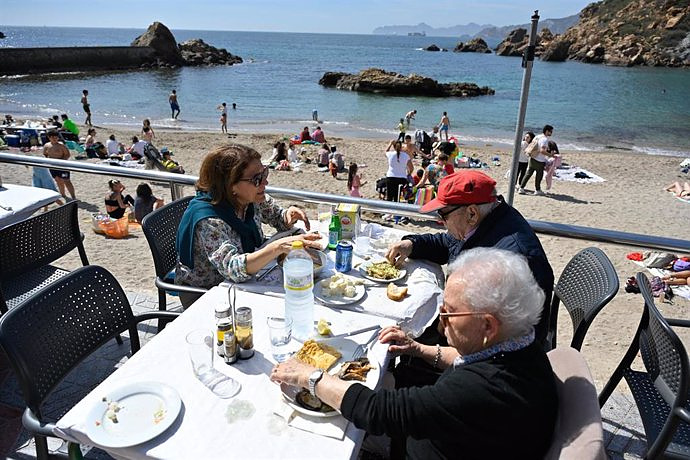Martín Blas maintains that a call from journalist Carlos Mier introduced a Trojan horse into his terminal that made the recording possible
MADRID, 22 Nov. (EUROPA PRESS) -
The former head of Internal Affairs Marcelino Martín Blas pointed out this Tuesday that the recording of a meeting he had with CNI agents in 2014 was possible thanks to the fact that they placed a Trojan horse on his mobile, and that it arrived due to a prior call from the journalist Carlos Mier, who in 2014 worked for a newspaper owned by commissioner José Manuel Villarejo.
This was explained during his statement as a witness in the trial held at the Provincial Court of Madrid against Villarejo in which he is accused of ordering to record and broadcast a meeting between agents of the National Police and the National Intelligence Center (CNI). ) on the investigation into Francisco Nicolás Gómez Iglesias, known as 'El Pequeño Nicolás'.
In response to the prosecutor's answers, Martín Blas explained that this meeting was held on October 20, 2014 in his office in order to inform the CNI that Gómez Iglesias had been arrested and the actions carried out from his department in this regard.
On the origin of this investigation into 'El Pequeño Nicolás', he has reported that it began because the Interior received a letter from the Secretary of the Vice-Presidency of the Government - at that time Soraya Sáenz de Sáenz de Santamaría was the head - and from the Government Economic Office realizing that this person was posing as a CNI agent and a government official.
Martín Blas, after receiving the order from the then deputy director of operations (DAO) Eugenio Pino, met a first time with the CNI to discuss the matter, and a second time to report on the arrest, as indicated.
Regarding the meeting on October 20, the one that was recorded, he stressed that Internal Affairs and the former DAO Pino were aware of it, and he specified that five people attended it --two CNI agents and three police officers-- and that the members of the CNI entered the headquarters of Internal Affairs but without registering their entry.
Much of the focus of the interrogations of the prosecutions and the defenses has been on the telephone terminals of the people who attended that "one hour" meeting. Martín Blas has indicated that he carried his in his pocket, that no one turned it off and that everyone gathered around a round table -in his office- on which there was no device.
The Prosecutor's Office wanted to know then when he realized that the meeting had been recorded, and he explained that a day or two later he saw that certain media began to publish details of it, such as that Little Nicolás had promised someone that he would if he listened to him they would end up making him a minister.
After reading the publications, Martín Blas ordered an investigation into the "Información Sensible" medium, since he was the one who had reported on that meeting, and as he explained, they realized that he was related to Commissioner Villarejo.
After starting the investigation into the leak of that recording, he recalled, he received an email from Pino's chief of staff, José Ángel Fuentes Gago, with the full recording by email on December 12, and he added that another journalist also provided them with a flash drive with the same recording.
After obtaining the recording, Martín Blas sent it to the Scientific Police for analysis, and he also later provided the telephone numbers of the police officers who took part in the meeting. That's when they assured her that it had been recorded through her terminal and that she was being manipulated because "there were on/off changes."
With this information, and with the progress of the investigation already judicialized, Martín Blas went to the National Cryptological Center where they confirmed that his phone was the one that recorded and that it had been thanks to a 'malware', a 'Trojan', which had entered without trace by means of an incoming call.
After analyzing those calls, they saw that his iPhone 4 -of which he has said it was vulnerable- had registered one on October 20, 2014 from the journalist Carlos Mier, who did not have to have his number but who worked at the information Sensible, owned by the Cenyt de Villarejo business group.
After exposing the facts, Martín Blas recalled that at that time Pino asked him for his telephone number to install a protection system for him, and he pointed out that it seemed strange to him because it was only installed in members of a higher rank than his. In line, he has indicated that, after inquiring, he learned that it could be used to increase security but also for other purposes.
Commissioner Villarejo's defense, in turn, has tried to show that there is enmity between his client and Martín Blas, that they knew each other well, and that since the meeting in the office of the former head of Internal Affairs "was illegal", he lacked the protection of secrecy that concerns the CNI.
In the session on Tuesday, three other police officers have testified. One of them, head of the Internal Affairs brigade, explained that he was in a meeting with members of the CNI, but he did not remember the date or if they met on more occasions. Yes, he has pointed out that he had two phones at the time and that they asked him to send them for analysis.
On the other hand, before giving way to the witnesses, the president of the court, Ángela Alcover, has resolved the previous questions and has refused to include an alleged crime of procedural fraud and slander -as requested by popular accusations-, she has declared that it is not pertinent to cite the former director of the CNI Paz Esteban as a witness since he has reservations for having belonged to the intelligence service, and has considered that it is not necessary to listen to the audio recording of that meeting during the oral hearing.
The Seventh Section of the Provincial Court of Madrid judges both Villarejo and his wife, Gemma Alcalá, and the journalist Carlos Mier for an alleged crime of discovery and disclosure of secrets. The Prosecutor's Office requests a four-year prison sentence for the commissioner, while for his wife and Mier they request three years in prison, considering that they acted as necessary collaborators. The State Attorney requested the same sentences for the same crimes.

 Exploring Cardano: Inner Workings and Advantages of this Cryptocurrency
Exploring Cardano: Inner Workings and Advantages of this Cryptocurrency Seville.- Economy.- Innova.- STSA inaugurates its new painting and sealing hangar in San Pablo, for 18 million
Seville.- Economy.- Innova.- STSA inaugurates its new painting and sealing hangar in San Pablo, for 18 million Innova.- More than 300 volunteers join the Andalucía Compromiso Digital network in one month to facilitate access to ICT
Innova.- More than 300 volunteers join the Andalucía Compromiso Digital network in one month to facilitate access to ICT Innova.-AMP.- Ayesa acquires 51% of Sadiel, which will create new technological engineering products and expand markets
Innova.-AMP.- Ayesa acquires 51% of Sadiel, which will create new technological engineering products and expand markets The Prosecutor's Office requests that the AN investigate the detainee for terrorism for damaging an ax in a McDonalds in Badalona
The Prosecutor's Office requests that the AN investigate the detainee for terrorism for damaging an ax in a McDonalds in Badalona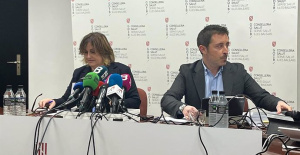 Balearic PSOE denounces the director of IbSalut for prevarication for renouncing the mask claim file
Balearic PSOE denounces the director of IbSalut for prevarication for renouncing the mask claim file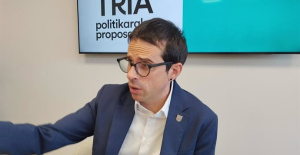 Otxandiano reproaches that PSOE "has lent itself" to taking out ETA in the campaign, like the extreme right against Sánchez
Otxandiano reproaches that PSOE "has lent itself" to taking out ETA in the campaign, like the extreme right against Sánchez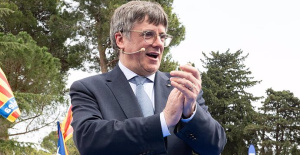 Puigdemont claims to have a "well grasp" of the State and asks to "be respected" to obtain more transfers
Puigdemont claims to have a "well grasp" of the State and asks to "be respected" to obtain more transfers How Blockchain in being used to shape the future
How Blockchain in being used to shape the future Not just BTC and ETH: Here Are Some More Interesting Coins Worth Focusing on
Not just BTC and ETH: Here Are Some More Interesting Coins Worth Focusing on Valencia displays its "innovative and technological potential" at the Emerge Americas event in Miami
Valencia displays its "innovative and technological potential" at the Emerge Americas event in Miami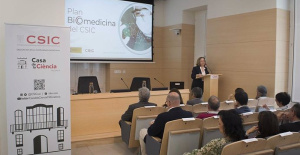 The CSIC incorporates the challenges of robotics, nanotechnology and AI in the new strategic plan for biomedicine
The CSIC incorporates the challenges of robotics, nanotechnology and AI in the new strategic plan for biomedicine Innovation allocates 9.1 million to train 74,000 people and guarantee digital inclusion
Innovation allocates 9.1 million to train 74,000 people and guarantee digital inclusion LIFE SPOT manages to develop new green treatments that eliminate groundwater contamination
LIFE SPOT manages to develop new green treatments that eliminate groundwater contamination A million people demonstrate in France against Macron's pension reform
A million people demonstrate in France against Macron's pension reform Russia launches several missiles against "critical infrastructure" in the city of Zaporizhia
Russia launches several missiles against "critical infrastructure" in the city of Zaporizhia A "procession" remembers the dead of the Calabria shipwreck as bodies continue to wash up on the shore
A "procession" remembers the dead of the Calabria shipwreck as bodies continue to wash up on the shore Prison sentences handed down for three prominent Hong Kong pro-democracy activists
Prison sentences handed down for three prominent Hong Kong pro-democracy activists ETH continues to leave trading platforms, Ethereum balance on exchanges lowest in 3 years
ETH continues to leave trading platforms, Ethereum balance on exchanges lowest in 3 years Investors invest $450 million in Consensys, Ethereum incubator now valued at $7 billion
Investors invest $450 million in Consensys, Ethereum incubator now valued at $7 billion Alchemy Integrates Ethereum L2 Product Starknet to Enhance Web3 Scalability at a Price 100x Lower Than L1 Fees
Alchemy Integrates Ethereum L2 Product Starknet to Enhance Web3 Scalability at a Price 100x Lower Than L1 Fees Mining Report: Bitcoin's Electricity Consumption Declines by 25% in Q1 2022
Mining Report: Bitcoin's Electricity Consumption Declines by 25% in Q1 2022 Oil-to-Bitcoin Mining Firm Crusoe Energy Systems Raised $505 Million
Oil-to-Bitcoin Mining Firm Crusoe Energy Systems Raised $505 Million Microbt reveals the latest Bitcoin mining rigs -- Machines produce up to 126 TH/s with custom 5nm chip design
Microbt reveals the latest Bitcoin mining rigs -- Machines produce up to 126 TH/s with custom 5nm chip design Bitcoin's Mining Difficulty Hits a Lifetime High, With More Than 90% of BTC Supply Issued
Bitcoin's Mining Difficulty Hits a Lifetime High, With More Than 90% of BTC Supply Issued The Biggest Movers are Near, EOS, and RUNE during Friday's Selloff
The Biggest Movers are Near, EOS, and RUNE during Friday's Selloff Global Markets Spooked by a Hawkish Fed and Covid, Stocks and Crypto Gain After Musk Buys Twitter
Global Markets Spooked by a Hawkish Fed and Covid, Stocks and Crypto Gain After Musk Buys Twitter Bitso to offset carbon emissions from the Trading Platform's ERC20, ETH, and BTC Transactions
Bitso to offset carbon emissions from the Trading Platform's ERC20, ETH, and BTC Transactions Draftkings Announces 2022 College Hoops NFT Selection for March Madness
Draftkings Announces 2022 College Hoops NFT Selection for March Madness